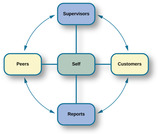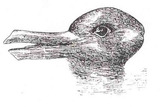
- Subject:
- Psychology
- Social Science
- Material Type:
- Module
- Author:
- OpenStax College
- Date Added:
- 07/18/2021


By the end of this section, you will be able to:Define intrinsic and extrinsic motivationUnderstand that instincts, drive reduction, self-efficacy, and social motives have all been proposed as theories of motivationExplain the basic concepts associated with Maslow’s hierarchy of needs

By the end of this section, you will be able to:Understand basic biological mechanisms regulating sexual behavior and motivationAppreciate the importance of Alfred Kinsey’s research on human sexualityRecognize the contributions that William Masters and Virginia Johnson’s research made to our understanding of the sexual response cycleDefine sexual orientation and gender identity

By the end of this section, you will be able to:Describe the field of human factors psychologyExplain the role of human factors psychology in safety, productivity, and job satisfaction

By the end of this section, you will be able to:Explain the aspects of employee selectionDescribe the kinds of job trainingDescribe the approaches to and issues surrounding performance assessment


By the end of this section, you will be able to:Define organizational psychologyExplain the measurement and determinants of job satisfactionDescribe key elements of management and leadershipExplain the significance of organizational culture

By the end of this section, you will be able to:Understand the scope of study in the field of industrial and organizational psychologyDescribe the history of industrial and organizational psychology

By the end of this section, you will be able to:Understand educational requirements for careers in academic settingsUnderstand the demands of a career in an academic settingUnderstand career options outside of academic settings

By the end of this section, you will be able to:Appreciate the diversity of interests and foci within psychologyUnderstand basic interests and applications in each of the described areas of psychologyDemonstrate familiarity with some of the major concepts or important figures in each of the described areas of psychology

By the end of this section, you will be able to:Understand the importance of Wundt and James in the development of psychologyAppreciate Freud’s influence on psychologyUnderstand the basic tenets of Gestalt psychologyAppreciate the important role that behaviorism played in psychology’s historyUnderstand basic tenets of humanismUnderstand how the cognitive revolution shifted psychology’s focus back to the mind

Opening image caption:Psychology is the scientific study of mind and behavior. (credit "background": modification of work by Nattachai Noogure; credit "top left": modification of work by U.S. Navy; credit "top middle-left": modification of work by Peter Shanks; credit "top middle-right": modification of work by "devinf"/Flickr; credit "top right": modification of work by Alejandra Quintero Sinisterra; credit "bottom left": modification of work by Gabriel Rocha; credit "bottom middle-left": modification of work by Caleb Roenigk; credit "bottom middle-right": modification of work by Staffan Scherz; credit "bottom right": modification of work by Czech Provincial Reconstruction Team)Psychology is designed to meet scope and sequence requirements for the single-semester introduction to psychology course. The book offers a comprehensive treatment of core concepts, grounded in both classic studies and current and emerging research. The text also includes coverage of the DSM-5 in examinations of psychological disorders. Psychology incorporates discussions that reflect the diversity within the discipline, as well as the diversity of cultures and communities across the globe.

By the end of this section, you will be able to:Understand the etymology of the word “psychology”Define psychologyUnderstand the merits of an education in psychology

By the end of this section, you will be able to:Explain how classical conditioning occursSummarize the processes of acquisition, extinction, spontaneous recovery, generalization, and discrimination


By the end of this section, you will be able to:Define observational learningDiscuss the steps in the modeling processExplain the prosocial and antisocial effects of observational learning

By the end of this section, you will be able to:Define operant conditioningExplain the difference between reinforcement and punishmentDistinguish between reinforcement schedules

By the end of this section, you will be able to:Explain how learned behaviors are different from instincts and reflexesDefine learningRecognize and define three basic forms of learning—classical conditioning, operant conditioning, and observational learning

By the end of this section, you will be able to:Discuss hospice careDescribe the five stages of griefDefine living will and DNR
